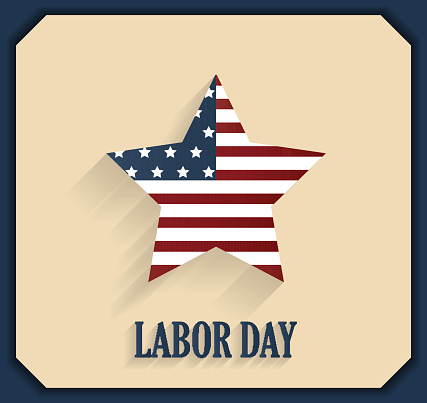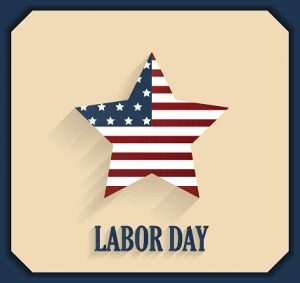
 Labor Day arrives in early September, ushering in store sales, back-to-school, and the welcome chance for a day off from work. It’s also an opportunity to remember its origins, as a day to honor everyday workers.
Labor Day arrives in early September, ushering in store sales, back-to-school, and the welcome chance for a day off from work. It’s also an opportunity to remember its origins, as a day to honor everyday workers.
In the United States of the early 1900s, working conditions in many places were hazardous and inhumane, and child labor was not uncommon. Organizing efforts to campaign for safe and humane conditions, fair wages and hours, and to end child labor, are part of what we celebrate with today’s Labor Day.
Here’s how CareerOneStop can help make this your best Labor Day ever:
Find a career that makes use of your strongest interests and offers a good salary with high employer demand.
- Check out CareerOneStop’s Interest Assessment, and link to details on your suggested careers.
- Review career profiles.
- See the fastest-growing and careers with the most openings in your local area.
Learn about how training and education can help you qualify for better jobs, earn more money, and make work more satisfying.
- Explore the different types of training available to see which might fit your current needs and time available.
- Find out how to pay for training.
- Apprenticeships are in the news lately – could they work for you?
Get started on a job search right away or learn how to present yourself to employers more skillfully.
- Use the Job Finder to search 3 job national job banks, updated with new postings daily.
- CareerOneStop’s Resume Guide details all aspects of developing and improving your resume and cover letters.
- Learn all the steps to executing a strong interview and negotiating job offers.
- Take your job search online describes key social media tools and how to use them to look for work.
If free, personal assistance is what you really need to get your career moving, look for a local American Job Center to contact for computer access, workshops, and job help.
CareerOneStop wishes all workers across the United States a happy Labor Day, with gratitude for your ideas, your energy, and all the work you contribute.


 National Aviation Day was established in 1939 to promote careers in piloting airplanes. If you wonder about a career in aviation, but have no experience yet, you can find encouragement in the story of one of the founders of aviation, and in some detailed information about your aviation career options.
National Aviation Day was established in 1939 to promote careers in piloting airplanes. If you wonder about a career in aviation, but have no experience yet, you can find encouragement in the story of one of the founders of aviation, and in some detailed information about your aviation career options.
 Did you know that background and other employment checks are a common piece of the job search process?
Did you know that background and other employment checks are a common piece of the job search process?
 Today’s job market can feel harsh, even with an ironclad resume. Finding good, stable jobs remains difficult and increasingly employers are reporting difficulty finding candidates who have the necessary skills to find a home in their companies and succeed in the long term. More and more it appears that there is a skill gap in the workforce, but the missing skills might not be the ones you’re thinking of.
Today’s job market can feel harsh, even with an ironclad resume. Finding good, stable jobs remains difficult and increasingly employers are reporting difficulty finding candidates who have the necessary skills to find a home in their companies and succeed in the long term. More and more it appears that there is a skill gap in the workforce, but the missing skills might not be the ones you’re thinking of. Hygiene, punctuality, and dressing presentably are the absolute baseline of soft skills, especially for an interview—a stick of deodorant might make up for a missed shower once you’ve been working there for a while but you probably won’t get or keep a job you show up to late, and in the clothes you slept in. Expectations for how to dress will vary with every job, from an explicit uniform given to you by your employer to an implicit uniform like a suit or a dress code that could be strict or casual.
Hygiene, punctuality, and dressing presentably are the absolute baseline of soft skills, especially for an interview—a stick of deodorant might make up for a missed shower once you’ve been working there for a while but you probably won’t get or keep a job you show up to late, and in the clothes you slept in. Expectations for how to dress will vary with every job, from an explicit uniform given to you by your employer to an implicit uniform like a suit or a dress code that could be strict or casual. Once you’ve truly become a part of the team at your new job then rising to new heights will often come down to your critical thinking, self-motivation, and perseverance. These skills and traits aren’t as black and white as some of the things we’ve talked about above but they’re just as important and you’re just as capable of improving them—or putting them to work for you. From an employer’s perspective these come down to more than just getting the job done, they show a hunger for the job that they can entrust with more responsibility, a team player who might be worth investing in for the future.
Once you’ve truly become a part of the team at your new job then rising to new heights will often come down to your critical thinking, self-motivation, and perseverance. These skills and traits aren’t as black and white as some of the things we’ve talked about above but they’re just as important and you’re just as capable of improving them—or putting them to work for you. From an employer’s perspective these come down to more than just getting the job done, they show a hunger for the job that they can entrust with more responsibility, a team player who might be worth investing in for the future.
 Does the very idea of a job fair make your palms sweat? Or do you get truly excited at the thought of getting to meet so many potential employers?
Does the very idea of a job fair make your palms sweat? Or do you get truly excited at the thought of getting to meet so many potential employers?
 How many times have you heard someone say “I could NEVER sit behind a desk all day”? If that describes your outlook, there are plenty of career alternatives for you to investigate.
How many times have you heard someone say “I could NEVER sit behind a desk all day”? If that describes your outlook, there are plenty of career alternatives for you to investigate.
 The U.S. Department of Labor estimates that the country
The U.S. Department of Labor estimates that the country 


 As a veteran, you have many education and training options.
As a veteran, you have many education and training options.
 As the year approaches its halfway mark, it’s a great time to check in on your goals for 2017. Even if New Year’s optimism has given way to discouragement or indifference, there is plenty of time left to work on building a platform for what you want to do next.
As the year approaches its halfway mark, it’s a great time to check in on your goals for 2017. Even if New Year’s optimism has given way to discouragement or indifference, there is plenty of time left to work on building a platform for what you want to do next.